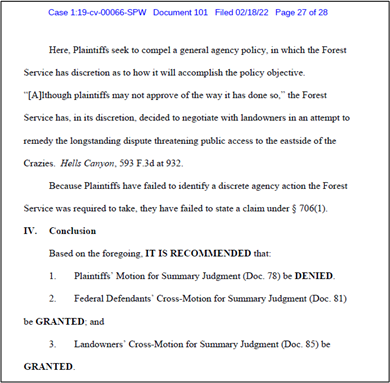Irrelevant
Well-known member
I'll double post this

 www.outdoorlife.com
www.outdoorlife.com

A Public-Access Lawsuit in Montana’s Crazy Mountains Claims Forest Service Is Catering to Private Landowners
The lawsuit that was filed against the U.S. Forest Service centers around four established hiking trails in Montana's Crazy Mountains.
 www.outdoorlife.com
www.outdoorlife.com





